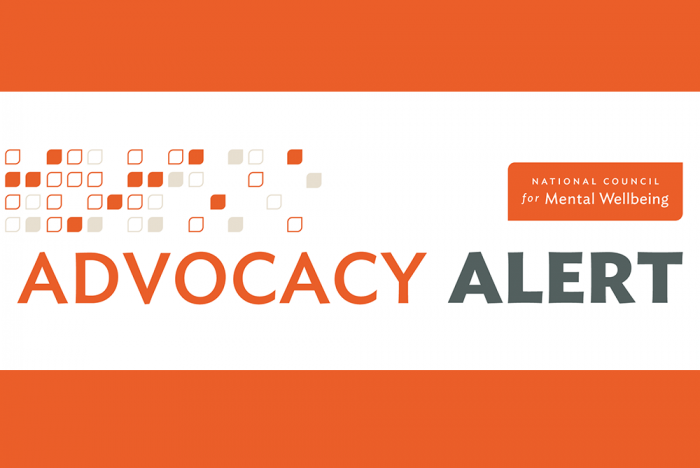Jim Sharp
RCPA Submits Public Comments to the IRRC: Revised Mental Health Procedures Standards
In response to the Office of Mental Health and Substance Abuse Services’ (OMHSAS) proposed Regulation #14-558: Mental Health Procedure RCPA, in partnership with its members, has submitted public comments.
The proposed regulations align the Department’s regulations with the Mental Health Procedures Act by adding definitions of “business associate” and “covered entity,” and adding those entities to the list of parties to which the Department may disclose confidential information.
RCPA did request that OMHSAS provide further clarification on the impacts and intersects of the proposed standards for youth and parental consents outlined in Act 65.
RCPA fully supports the proposed regulations that will align departmental regulations with Act 32 of 2022 and the Health Insurance Portability and Accountability Act of 1996 (HIPAA) requirements.
We look forward to working with the Department in the communication and ongoing implementation of the proposed regulatory changes, including the release of a Regulatory Compliance Guide after final promulgation. If you have any questions, please contact RCPA COO and Mental Health Services Director Jim Sharp.
National Council Advocacy Alert: 2026 Mental Health and SUD Legislation
From the National Council for Mental Wellbeing
As RCPA continues to support efforts to realign Pennsylvania’s integrated behavioral and physical health initiatives with the return to the CCBHC model, our partners at the National Council have issued this advocacy alert on recent legislation expanding States opportunities in serving our vulnerable communities.
This opportunity will focus member reach out to our Senators about a new bipartisan bill that would help sustain and expand access to Certified Community Behavioral Health Clinics (CCBHCs) in Pennsylvania and across the country.
S 3402 would give states and organizations the ability to continue growing the behavioral health workforce, expand services for older adults and people eligible for both Medicare and Medicaid, and help more communities establish CCBHCs.
Right now there are three co-sponsors in the Senate. If enough people contact their Senators, we can keep the momentum going!
TAKE ACTION
We also included some more detail about the legislation via the above “take action” link if you’d like to dive deeper. The letter takes about 1–2 minutes to send. If you want to call your Senators’ offices and leave a message too, we made a script for you to use – just follow the prompts on the page.
If you have any questions please contact RCPA COO and Mental Health Services Director Jim Sharp.
Children’s Trust Fund Shares Grant Opportunity
The Children’s Trust Fund (CTF) provides small grants to local community-based programs/services that prevent child abuse and neglect before an incident occurs. The Children’s Trust Fund (CTF) Request for Application (RFA) was posted on eMarketplace today, January 5, 2026. The press release is being shared through DHS comms, PA Key comms, and a special announcement in the e-News.
RCPA, as part of several statewide work groups and task forces, wishes to share this with members, though you may receive this through other communications networks. The RFA is only available for 30 days, due no later than February 5, 2026.
If an applicant has any questions regarding this RFA, the applicant must submit those questions via email, with the subject line “25-RFA-13772 Question” to the RFA Issuing Officer named in Part 1, Section I-2 of this RFA. The Issuing Officer shall post all written answers to the questions submitted on the Department of General Services (DGS) website at eMarketplace as an addendum to this RFA.
You may view the Request for Application online at eMarketplace.
CMS Announces Awards to Strengthen Rural Health; PA to Receive Nearly $200M in 2026
Press release from the Centers for Medicare & Medicaid Services:
The Centers for Medicare & Medicaid Services (CMS) has announced that all 50 states will receive awards under the Rural Health Transformation Program, a $50 billion initiative established under President Trump’s Working Families Tax Cuts legislation (Public Law 119-21) to strengthen and modernize health care in rural communities across the country. In 2026, states will receive first-year awards from CMS averaging $200 million, within a range of $147 million to $281 million. This unprecedented federal investment will help states expand access to care in rural communities, strengthen the rural health workforce, modernize rural facilities and technology, and support innovative models that bring high-quality, dependable care closer to home.
Awardees and Funding Amounts
The Rural Health Transformation Program’s $50 billion in funds will be allocated to approved states over five years, with $10 billion available each year from 2026 through 2030. As directed by Public Law 119-21:
- 50% of the funding is distributed equally among all approved states. This provides states with a strong foundation to begin implementing their Rural Health Transformation Plans; and
- 50% is allocated based on a variety of factors. As described in the Notice of Funding Opportunity, those factors include individual state metrics around rurality and a state’s rural health system, current or proposed state policy actions that enhance access and quality of care in rural communities, and application initiatives or activities that reflect the greatest potential for, and scale of, impact on the health of rural communities. All scoring factors are outlined further in the Notice of Funding Opportunity.
Read the full press release here.
Pennsylvania submitted their plan to CMS in November, and the plan is currently being evaluated. CMS made funding awards to all 50 states, with Pennsylvania receiving $193,294,054.
RCPA continues to work with the Department of Human Services (DHS) in answering questions from members as well as gaining an understanding on the implementation values for PA specific initiatives from both funding allocation pathways.
If you have any questions, please contact RCPA COO Jim Sharp.
Reminder: RCPA to Hold Member Orientation Webinar on January 14, 2026
This is a reminder that RCPA will be holding a membership benefits webinar on Wednesday, January 14, 2026, at 1:00 pm, as an opportunity for members to orient themselves with all that RCPA membership includes. This is not just for new and future members. For current members, there may be benefits associated with our membership that you may not be aware of, including targeted meetings and groups that are held throughout the year.
Registration is required; please register here to attend the webinar. Attendees will have the opportunity to:
- Virtually meet the dedicated RCPA Policy Staff and RCPA lobbyists;
- Discuss the 2026 Legislative and Administrative priorities;
- Preview RCPA divisional committee and subcommittee meetings and what they offer;
- View the RCPA member-only website;
- Review exclusive yearly educational and networking events; and
- Understand the value of the National Council and ANCOR memberships included with RCPA membership.
Visit the RCPA member benefits web page for more information, or contact Tieanna Lloyd for benefit details.
OMHSAS Opens Public Comment Period for Proposed Regulations for State HIPAA Compliance
The Office of Mental Health and Substance Abuse Services (OMHSAS) has released the proposed Mental Health Procedures regulations, which are open for public comment. The posting on the Independent Regulatory Review Commission (IRRC) website can be found here.
The proposed regulations are to be in compliance with Act 32 of 2022. OMHSAS is choosing to go beyond the updates required by Act 32 and is doing a full alignment of the chapter with the Health Insurance Portability and Accountability Act of 1996 (HIPAA) to increase the clarity of the regulations for stakeholders.
Starting December 6, 2025, and closing January 5, 2026, the public may submit written comments regarding the proposed rulemaking to the Department via email. Please be aware that all public comments must be published verbatim on the IRRC website with the name of the commenter included. OMHSAS fully supports and encourages individuals with lived experience to comment on the regulation. However, please ensure you are comfortable with the content of your comment being made public, with your name attached to it.
RCPA has conducted an internal review of the proposed regulations and is seeking member feedback and comments to be included in our submission. Members are encouraged to review and provide recommendation and guidance on the impacts of the proposed regulations on your organization. Agencies may submit separately or in conjunction with RCPA.
Comments may also be submitted to RCPA COO and Mental Health Policy Director Jim Sharp by January 2, 2026, OR to the following address:
Department of Human Services
OMHSAS – Bureau of Policy, Planning, and Program Development,
Attention: BPPPD
Commonwealth Tower, 11th Floor
303 Walnut Street
Harrisburg, Pennsylvania 17105
Mental Health Care Workers Face Too Many Needs and Not Enough Money on the Front Line of PA’s Self-Made Crisis, RCPA Member Scranton Counseling Center Featured
OMHSAS Releases 4 Walls Telehealth Bulletin
Message from the Office of Mental Health and Substance Abuse Services (OMHSAS):
The Pennsylvania Department of Human Services’ (DHS) Office of Mental Health and Substance Abuse Services (OMHSAS) is issuing the bulletin OMHSAS-25-05 “Behavioral Health Clinic Services Provided Outside of the Clinic,” effective November 12, 2025, following changes to Federal Regulation 42 CFR 440.90(d).
OMHSAS 25-05 announces an amendment to Pennsylvania’s Medicaid State Plan which allows all behavioral health clinics that are enrolled in the Medical Assistance (MA) Program, who deliver services through the fee-for-service and managed care systems, to provide clinically appropriate services outside of the clinic. Behavioral health clinics include psychiatric outpatient clinics, outpatient drug and alcohol clinics, and methadone maintenance clinics.
Furthermore, OMHSAS-25-05 also announces the abrogation of 55 Pa Code §§ 1153.14(6) (relating to noncovered services) and 55 Pa. Code 1223.14(11) (relating to noncovered services) by Act 46 of 2025.
The guidance in OMHSAS-25-05 is separate from any “telehealth only” licensure and guidance that may be in place. The changes discussed in this bulletin also do not apply to the existing Mobile Mental Health Telehealth (MMHT) services.
Questions and comments can be directed to OMHSAS via email. RCPA members can also contact RCPA COO and MH Policy Director Jim Sharp with any questions.


















